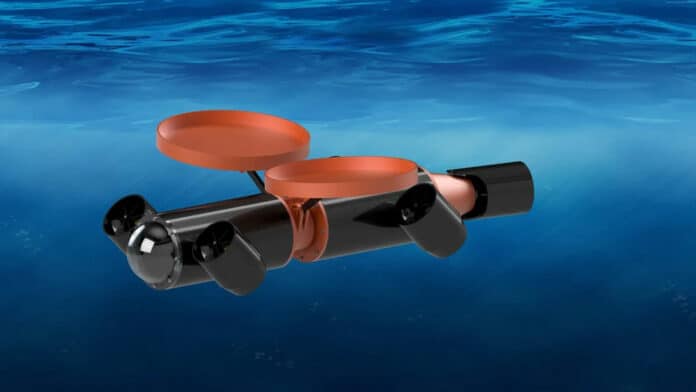A new marine sector startup, ScrubMarine, is developing an innovative underwater robot that can autonomously remove built-up microorganisms, plants, and algae from the hulls of ships, boats, and submarines.
This technology will help reduce fuel costs, maintenance needs, and environmental impact. ScrubMarine has been accepted into the first cohort of Heriot-Watt University’s DeepTech LaunchPad, a pilot program supporting robotics, AI, and advanced engineering entrepreneurs to commercialize their ideas.
The buildup of organic growth on marine vessels, which is commonly referred to as biofouling, poses a major challenge to the shipping industry. It can cause significant damage to the hull structures and propulsion systems of ships. This accumulation of biofouling can also lead to a substantial increase in drag, which can reduce the speed of ships by up to 60%.
Moreover, it can increase fuel consumption by as much as 40%. All of these consequences can significantly impact the shipping industry’s efficiency and profitability, making biofouling a major concern for marine vessel operators.
As part of a 6-month pilot, participants from various sectors such as robotics, self-care, food services, marine technologies, and medical devices will be able to utilize Heriot-Watt University’s experts from its three global campuses and the research outputs of four global research institutes, including iNetZ+.
Some of the participants include Borobo Ltd, which aims to advance a new robotics platform, and ScrubMarine, which is developing specialized robots to tackle biofouling in maritime vessels.
GI Healthcare Industries is using semi-autonomous cooking robots for institutional catering, and Infinity DPM is creating advanced upper limb prosthetics. Janki Group is building an AI-powered tattoo robot system for the personal self-care industry, and Wynter Robotics is building mobile robotic solutions for construction industry applications.
These companies, led by their respective founders, are receiving training and support from a commercialization team to become investment-ready with proven prototype products, industry partners, and a viable route to market.
“The DeepTech LaunchPad marks an incredibly exciting step in strengthening Scotland’s innovation ecosystem and establishing Heriot-Watt as a global leader in commercializing deep technology research. As an international university with campuses and partnerships spanning the world, Heriot-Watt is uniquely positioned to help entrepreneurs translate their ideas into transformative and commercially viable solutions,” said Jamie Allan, Deeptech Launchpad program leader.
“Through this pilot program, our six-strong cohort will gain access to world-leading facilities like the National Robotarium as well as our vast network of international industry connections, experts, and alumni to accelerate their cutting-edge research toward commercial success on the global stage. By fostering this collaboration, we empower the translation of deep science into transformative solutions ready to make a real-world impact.”
“Having a deep tech accelerator is one of the missing pieces in Scotland’s entrepreneurial ecosystem and will allow our nation to create companies that can compete on an international scale,” said Grant Wheeler, Head of Commercialisation. “By giving external entrepreneurs access to the same expertise and facilities as our internal teams, the DeepTech Launchpad levels the playing field and fertilizes high-growth businesses with world-changing potential.”
Applications for the next cohort would open in mid-2024 following the evaluation of the pilot. If this first round proves successful, Heriot-Watt intends to scale up the program and potentially expand it to other Scottish universities.
